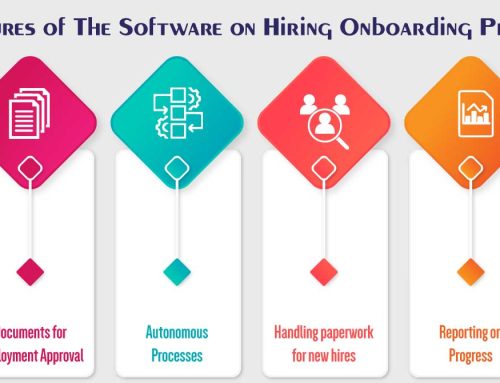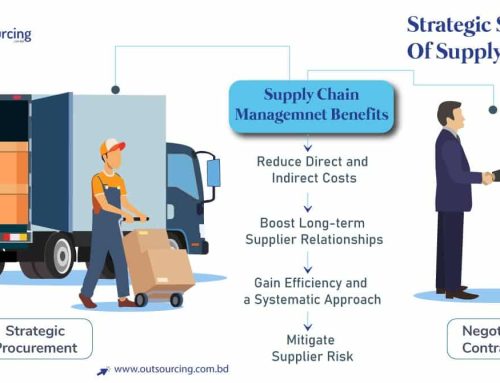HR Outsourcing: Things To Keep In Mind
Outsourcing is the process of gathering work that has previously been completed by internal employees from outside resources.
How Does HR Outsourcing Work?
HR Outsourcing is a method by which a company outsources its HR functions to a third-party HR Consulting firm.
HR services consulting allows a company to employ or outsource any or all of its HR-related operations to a single or mixed service.
According to a study, everyday tasks use 87% of a mid-sized company’s total funds, leaving only a small portion for other vital operations.
To Whom Can You Outsource HR Tasks?
Independent HR consultants: Independent HR consultants are professionals who can assist you with hiring, HR policies, and other decision-making.
HR consulting firms: usually employed on a contract basis, a full-service HR consulting firm performs identical functions to an HR consultant.
Delegated HR tasks
- Human resource management is a sophisticated process that entails a wide range of responsibilities. While outsourcing all of your HR functions can relieve a significant amount of stress off your shoulders, you shouldn’t go that route.
- Some aspects of HR administration are best handle in-house. These duties usually decide your company’s destiny as well as your connection with your staff.
- If you manage a small firm, for example, your present employees are likely to become the backbone of your organization. While outsourcing initial onboarding is an option, it is preferable to personally advise and train them.
This ensures that every employee receives hands-on training and is acquainted with the company’s culture.
The Tasks HR Professionals Should Handle
The following HR tasks are frequently outsourced:
- Talent Recruiting
- Managing Performance
- Payroll Administration
- Administration of Compensation and Benefits
Key Advantages Of HR Outsourcing
1. Cost-cutting
All of the extra costs associate with hiring, training, and keeping your HR team can be avoid by outsourcing human resource services.
2. Boosts Productivity
Several HR responsibilities, such as setting a payroll and establishing employee regulations, necessitate specialized knowledge. Some tasks, such as talent assessment and recruitment, necessitate years of experience.
HR outsourcing firms have highly skilled HR employees who can efficiently manage these responsibilities. They’ll also have access to cutting-edge HR technology to help them do their jobs. This improves the precision, quality, and speed with which your HR activities are carry out.
3. Ensures Adherence
It’s both difficult and necessary to keep your employment practices and employee perks up to date with industry standards.
Seeking expert assistance with HR rules not only relieves you of the strain but also helps you save your company in the event of an audit.
4. Concentrate On Your Core Skills
As your company grows, you should concentrate on improving your business methods, expanding your reach, and boosting your earnings.
HR Outsourcing’s Drawbacks
1. Risks Have Increased
You may be expose to additional risks if you outsource any aspect of your business, including HR tasks.
2. Contact Is Lessened
By creating a communication gap, human resources outsourcing can cause a wedge between you and your staff.
3. Customizability Is Limited
HR professionals can assist you with new hires and policies, but they won’t be able to tailor the process as effectively as you can. This is due to their lack of awareness of your company’s culture, which an in-house HR manager would have.
The Impact of HR Outsourcing on Employee Satisfaction
Positive Impacts:
- Efficiency in HR Processes: Outsourced HR services often have the expertise and technology to streamline HR processes, such as payroll, benefits administration, and onboarding. Faster, more efficient processes can lead to higher employee satisfaction.
- Access to Better Benefits: Outsourcing firms can often negotiate better benefits packages due to their volume of business. Offering competitive benefits can improve employee satisfaction and retention.
- Improved Compliance: Professional HR firms are experts in labor laws and regulations. This can ensure that employees are treat fairly and in compliance with all relevant laws, which can enhance employee trust and satisfaction.
- Focus on Core Business Functions: With HR tasks handled by experts, the company can focus more on its core functions, potentially leading to overall improvements in company performance and, therefore, higher job satisfaction.
Potential Negative Impacts:
- Impersonal Service: HR is often seen as the ‘human’ side of a business. Outsourcing can sometimes feel impersonal to employees, especially if the service is not manage well.
- Communication Barriers: If the HR outsourcing firm is in a different location or time zone, employees might find it difficult to get timely responses to their queries, leading to frustration.
- Data Security Concerns: Employee data is sensitive, and handing it to a third party can lead to concerns about data security, which can affect employee trust and satisfaction.
- Job Security Concerns: When HR functions are outsourced, existing HR staff may feel their jobs are threatened, which can lead to decreased job satisfaction and morale.
Final Thoughts
Take a look at the advice we’ve provided to see if HR outsourcing is right for you, especially if you’re a small business owner.
If you believe the advantages exceed the disadvantages, all you have to do now is discover the most cost-effective HR outsourcing service provider for your budget. HR services will be provided by us. You can enlist our help if you need better HR outsourcing services.
FAQ
What HR functions can be outsourced?
A: Nearly any HR function can be outsourced, but commonly outsourced areas include payroll, benefits administration, recruitment, training and development, performance management, compliance with labor and employment laws, and HR strategy development.
What should we consider when choosing an HR outsourcing partner?
A: Factors to consider include the provider’s experience and reputation, the scope and quality of their services, their understanding of your industry, their technology capabilities, their pricing structure, and their ability to scale services as your company grows.
Are there risks involved with HR outsourcing?
A: Yes, outsourcing HR functions can come with risks such as data privacy and security issues, lack of control over critical functions, potential quality issues, and the possibility of service interruptions. It’s important to mitigate these risks through careful provider selection, clear contracts, and ongoing performance monitoring.





